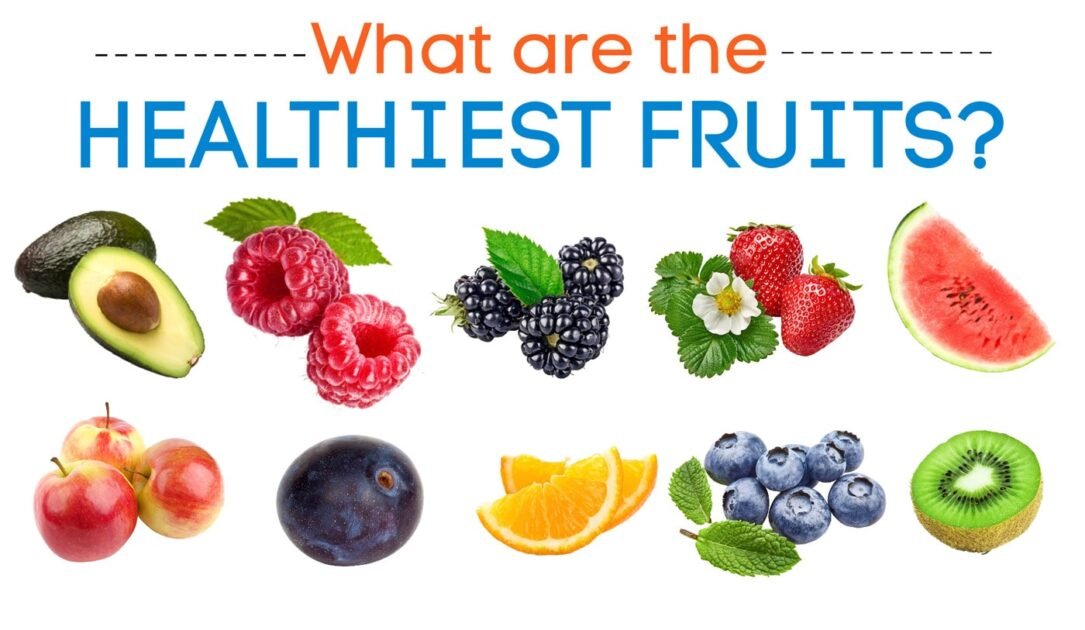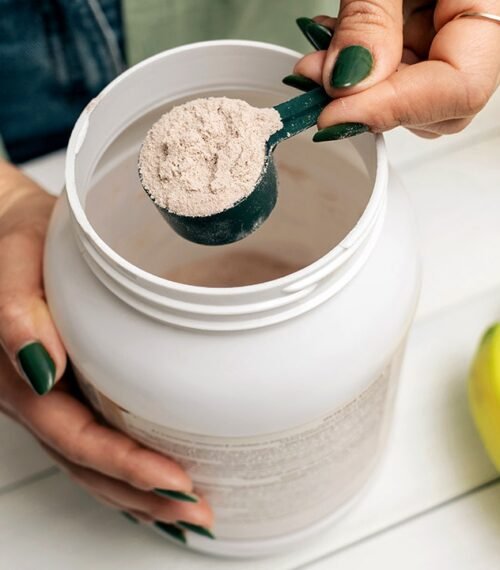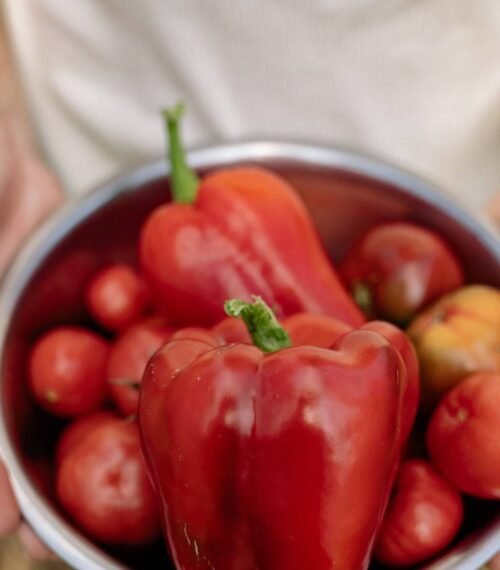Fruits are chock-full of vitamins, minerals, and antioxidants that make them highly beneficial components of a healthy diet. Each fruit is associated with a unique set of health benefits. However, with thousands of different types of fruits out there, which fruits are the healthiest? And what about low carb fruits? Where do they fit in?
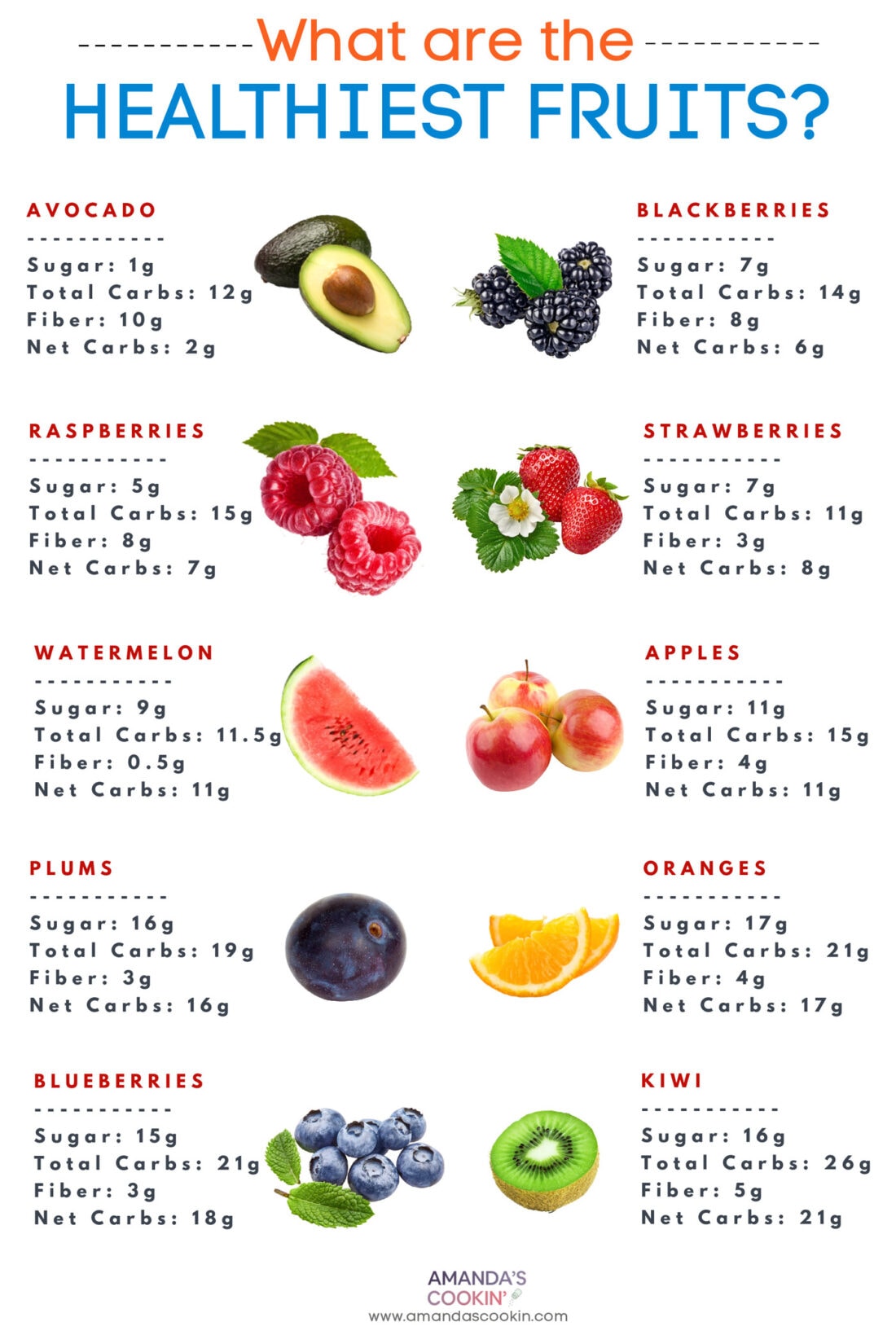
This comprehensive guide (you can print the guide above to hang on your fridge!) will break down the healthiest fruits to add to your diet by sugar and carb content, as well as some of the highest sugar fruits that should be consumed in moderation. Get your shopping list ready, because you’re going to want to write these down!
Total Carbs vs. Net Carbs
Starches, sugar, dietary fiber; how do you know which you should be concerned with? When you hear the term “net carbs”, that represents only the carbohydrates that the body fully turns into glucose. Net carbs are what affect your blood sugar, all others pass through your body without turning to glucose. When looking at a nutrition label on a product at the grocery store, look for total carbs and fiber. Subtract the number of grams of fiber from the total carbs to get your net carbs.
Best Low Sugar Low Carb Fruits
Here are the healthiest fruits ranked from lowest to highest in net carbs. If you are practicing a low carb lifestyle, or are diabetic and need to watch your sugar and carb counts, keep this list handy:
Avocado

Surprised to see avocado at the top of a list of healthy fruits? Contrary to popular belief, avocados are, in fact, fruits! Because the creamy fruits are such an extraordinary source of heart-healthy fats, they act as a staple in most ketogenic diets. Avocados also contain more than 20 different vitamins and minerals.
See all of our recipes using avocado.
Serving size: 1 cup
Sugar: 1 gram
Total Carbs: 12 grams
Dietary Fiber: 10 gramsNet Carbs: 2 grams
Blackberries

Not only are blackberries absolutely delicious (especially in cocktails like this Blackberry Mojito), but they are also packed with vitamins, minerals, and fiber. These sweet-tart berries are known as a popular summer staple and offer a wide variety of health benefits like boosted brain health, immune support, and increased digestive health.
See all of our recipes using blackberries.
Serving size: 1 cup
Sugar: 7 grams
Total Carbs: 14 grams
Dietary Fiber: 8 gramsNet Carbs: 6 grams
Raspberries

As one of the healthiest fruits you can eat, raspberries are low in sugar and packed with fiber, antioxidants, phytonutrients, and vitamins. If you’re looking to add more Vitamin C to your diet, raspberries contain over 32 milligrams per cup, making them a fantastic way to up your intake.
See all of our recipes using raspberries.
Serving size: 1 cup
Sugar: 5 grams
Total Carbs: 15 grams
Dietary Fiber: 8 gramsNet Carbs: 7 grams
Strawberries

Strawberries are one of the world’s most popular low carb fruits, popularly consumed in homemade jams and baked goods. Despite the deceptive name, strawberries are actually aggregate fruits and not berries. The delicious fruits are loaded with beneficial nutrients like Vitamin C, folate, manganese, and antioxidants. Because they have a low glycemic index, strawberries also won’t significantly impact your blood sugar levels.
See all of our recipes using strawberries.
Serving size: 1 cup
Sugar: 7 grams
Total Carbs: 11 grams
Dietary Fiber: 3 gramsNet Carbs: 8 grams
Watermelon

Arguably the most popular fruit of the summertime, watermelon is relatively low in sugar and is filled with a significantly higher water content than most fruits. The fruit is also an abundant source of vitamins, minerals, and antioxidants, making it a highly nutritious choice for a snack. For a delicious and healthy summer dessert, try this Watermelon Pizza.
See all of our recipes using watermelon.
Serving size: 1 cup
Sugar: 9 grams
Total Carbs: 11.5 grams
Dietary Fiber: 0.5 gramsNet Carbs: 11 grams
Apples

Because apples are low in calories and high in fiber, they are known as one of the best fruits to eat for weight loss. Regular consumption of apples can provide a wide range of health benefits; including digestion support, increased heart health, and a lowered risk of chronic diseases. A lot of the fiber in apples comes from the skin, so try to skip ditching the peel!
See all of our recipes using apples.
Serving size: 1 cup
Sugar: 11 grams
Total Carbs: 15 grams
Dietary Fiber: 4 gramsNet Carbs: 11 grams
Plums
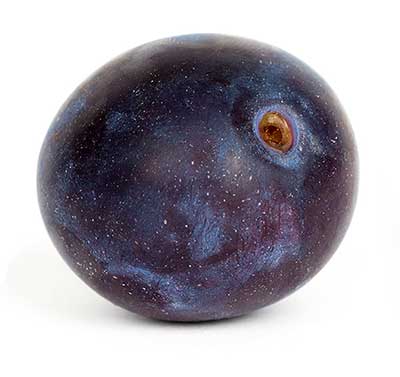
Since this stone fruit was first discovered in China thousands of years ago, they have made their way around the world and now have over 2,000 known varieties. Plums offer tons of vital nutrients and a subtle sweetness that make them the perfect additions to smoothie bowls and healthy desserts. These fruits are best known for their high levels of antioxidants and cancer-fighting abilities.
See all of our recipes using plums.
Serving size: 1 cup
Sugar: 16 grams
Total Carbs: 19 grams
Dietary Fiber: 3 gramsNet Carbs: 16 grams
Oranges

Known for their high content of Vitamin C, a single orange provides 91% of the recommended DV of the powerful vitamin. Oranges are packed with high volumes of nutrients and antioxidants, making them one of the healthiest low carb fruits. Health benefits of oranges include decreased blood pressure, inflammation, and cholesterol.
See all of our recipes using oranges.
Serving size: 1 cup
Sugar: 17 grams
Total Carbs: 21 grams
Dietary Fiber: 4 gramsNet Carbs: 17 grams
Blueberries

From breakfast muffins to refreshing cocktails, blueberries are one of the most popular low carb fruits. While blueberries are higher in sugar than other types of berries, they are loaded with phytonutrients that help to block sugar from being absorbed into the bloodstream. Blueberries are also packed with antioxidants and vitamins that offer an abundance of health benefits like lowering cholesterol and protecting the body from oxidative stress.
See all of our recipes using blueberries.
Serving size: 1 cup
Sugar: 15 grams
Total Carbs: 21 grams
Dietary Fiber: 3 gramsNet Carbs: 18 grams
Kiwi

Did you know that the kiwi is also known as the Chinese gooseberry? Kiwi has been used in traditional Chinese medicine for centuries as a tool to support digestion and gut health. These tropical fruits are incredible sources of vitamins, minerals, fiber, and polyphenols. Some of the top health benefits of kiwi include boosted immunity, reduced blood pressure, and digestion support. I love incorporating this tart fruit into refreshing summer snacks like these Fruit Popsicles.
See all of our recipes using kiwi.
Serving size: 1 cup
Sugar: 16 grams
Total Carbs: 26 grams
Dietary Fiber: 5 gramsNet Carbs: 21 grams
High Sugar Fruits
While all fruits are excellent sources of vitamins and antioxidants, you should consume them in moderation to keep your sugar intake at a healthy level. Some fruits are much higher in sugar than others, so it’s important to be aware of which fruits to eat in smaller quantities.
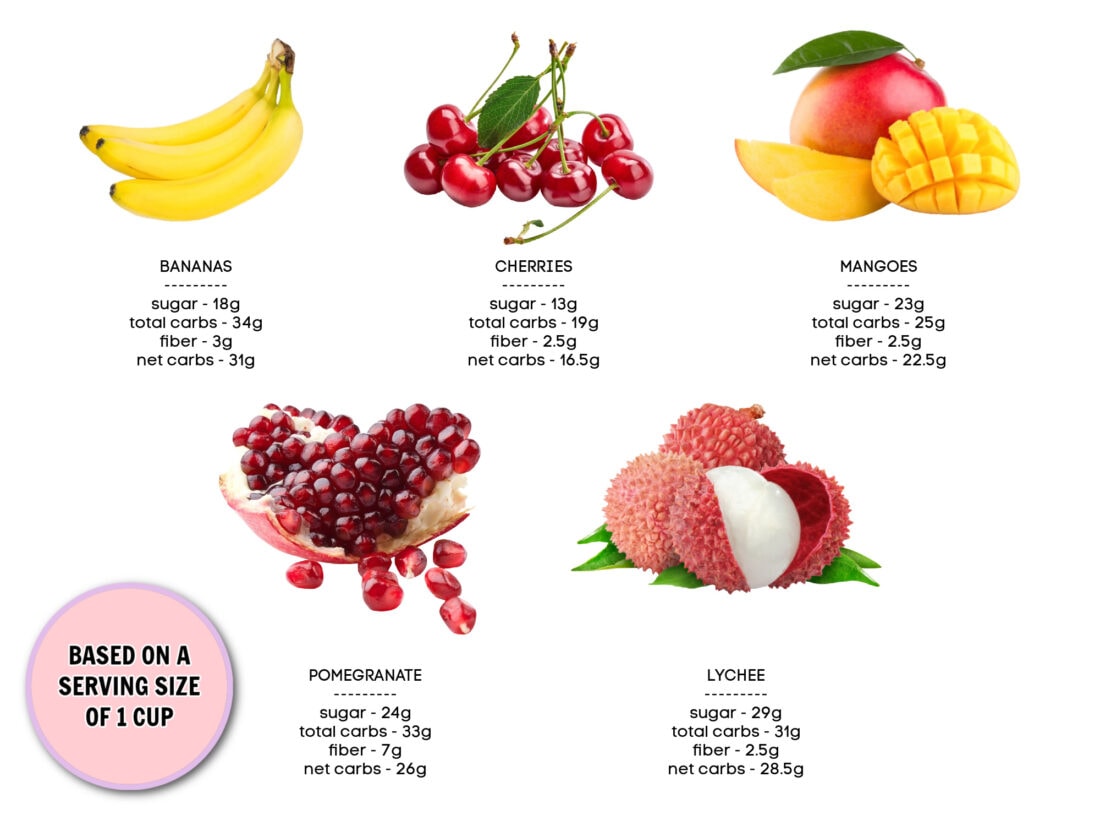
These are some of the highest sugar fruits (1 cup servings):
- Bananas – 18 grams of sugar, 3 grams of fiber and 34 grams of carbs. [31 net carbs]
- Cherries – 13 grams of sugar, 2.5 grams of fiber and 19 grams of carbs. [16.5 net carbs]
- Mangos – 23 grams of sugar, 2.5 grams of fiber and 25 grams of carbs. [22.5 net carbs]
- Pomegranate – 24 grams of sugar, 7 grams of fiber and 33 grams of carbs. [26 net carbs]
- Lychee – 29 grams of sugar, 2.5 grams of fiber and 31 grams of carbs. [28.5 net carbs]
So, now we’ve covered some of the world’s healthiest fruits, along with their sugar and carb contents. When it comes to eating on a low carb diet, it’s all about the numbers. Do you need to completely cut out higher carb fruits like bananas and cherries? Absolutely not.
Eating on a low carb diet doesn’t mean that you need to stop eating your favorite fruits, it simply means you need to moderate your consumption levels. Rather than topping your yogurt bowl with a whole sliced banana, try topping it with half a sliced banana and a handful of raspberries. Low carb diets can be incredibly beneficial ways to improve your health, but they don’t have to mean sacrificing flavor!
Looking for a comprehensive vegetable list next? Visit our Guide to the Best and Worst Low Carb Vegetables for more information!











































































































